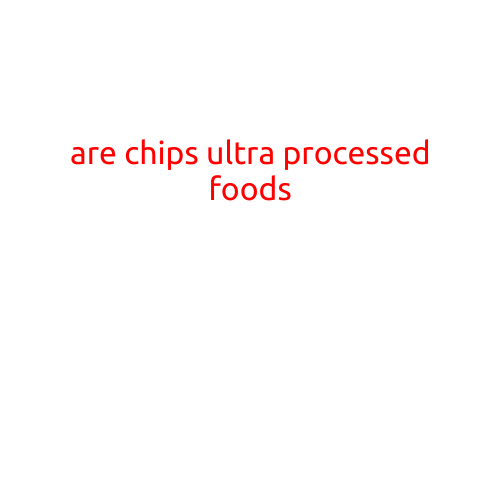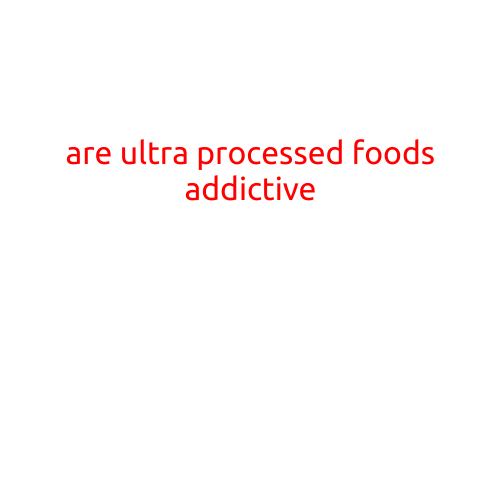
Ultra-Processed Foods: A Recipe for Disaster
The modern food landscape has undergone a significant transformation in recent decades. Gone are the days of homemade meals and simple, wholesome ingredients. With the rise of convenience and affordability, ultra-processed foods have become a staple in many of our diets. But is this a recipe for disaster? Yes, and here’s why.
What are ultra-processed foods?
Ultra-processed foods are defined as products that contain five or more ingredients, including food additives, preservatives, and modifiers. They are created in factories, often through a process involving multiple steps, and are typically packaged and marketed for convenience.
Examples of ultra-processed foods include:
- Frozen meals (TV dinners)
- Baked goods (cakes, pastries, cookies)
- Sugary snacks (chips, candies, crackers)
- Energy bars
- Processed meats (hot dogs, sausages, deli slices)
- Ready-to-eat cereals
- Breaded and fried foods (breaded chicken, fries)
Why are ultra-processed foods bad for you?
- High in sodium and sugar: Ultra-processed foods are designed to be Highly palatable, which means they are engineered to stimulate your brain’s reward centers and encourage overeating. They are often high in sodium and added sugars, which can lead to a range of health problems, including hypertension, type 2 diabetes, and heart disease.
- Low in essential nutrients: Ultra-processed foods are often made from refined flour, added sugars, and processed meat. These ingredients provide little to no essential nutrients, leaving you with an energy intake that is lacking in the nutrients your body needs to function properly.
- Disrupt gut health: The gut microbiome is a complex ecosystem that plays a critical role in our overall health. Ultra-processed foods can disrupt this balance by promoting the growth of unhealthy microorganisms and reducing the diversity of beneficial bacteria.
- Increase risk of chronic diseases: Studies have consistently shown that consumption of ultra-processed foods is associated with a higher risk of chronic diseases, including:
- Cardiovascular disease
- Type 2 diabetes
- Obesity
- Certain types of cancer
- Can lead to addiction: Ultra-processed foods are designed to be addictive, with a combination of salt, sugar, and fat that activates the brain’s reward centers. This can lead to overeating and difficulty quitting or controlling consumption.
- May affect cognitive function: Research suggests that a diet high in ultra-processed foods may be associated with a higher risk of cognitive decline and dementia.
What can you do to avoid ultra-processed foods?
- Cook from scratch: Cooking meals from scratch using whole, wholesome ingredients is the best way to avoid ultra-processed foods.
- Read labels: When shopping, read labels carefully and avoid products with a long list of ingredients or those that contain added sugars, sodium, or artificial additives.
- Choose whole foods: Focus on whole, unprocessed foods like fruits, vegetables, lean proteins, and whole grains.
- Limit convenience foods: While convenience foods can be tempting, try to limit your consumption of packaged meals and snacks.
- Support policymakers: Advocate for policies that promote healthier food options and restrict the marketing of ultra-processed foods to children.
Conclusion
Ultra-processed foods are a recipe for disaster, leading to a range of health problems and chronic diseases. By being aware of the ingredients and nutritional value of the foods you consume, you can take control of your diet and make informed choices about what you eat. Remember to cook from scratch, read labels carefully, choose whole foods, limit convenience foods, and support policymakers who promote healthier food options. Your body – and your health – will thank you!





